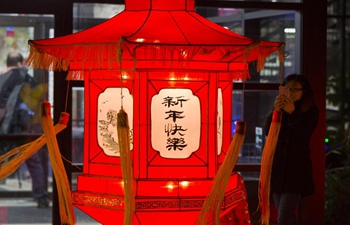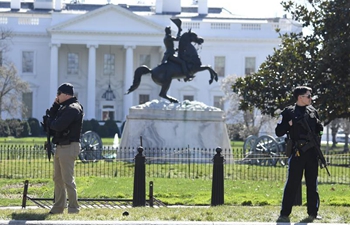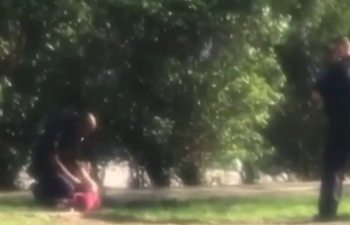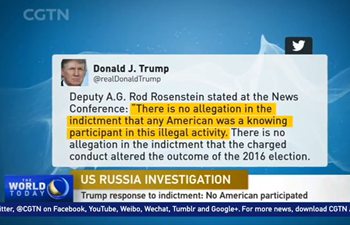JERUSALEM, March 4 (Xinhua) -- Israeli court on Sunday released to house arrest Netanyahu's former top adviser and a telecommunications tycoon, who had been held for two weeks over a high-profile corruption case.
The court sent Shaul Elovitch, the control holder of Israel's largest telecom company, Bezeq, and Nir Hefetz, Netanyahu's former media adviser and his close associate, to a 10-day long house arrest.
They were forbidden to talk with any of the other suspects in the case, which includes senior executives in Bezeq, or to leave the country for six months.
Elovitch was given also a restraining order, banning him from arriving at Bezeq's offices for 45 days.
Elovitch is suspected of being part of a bribery deal, in which Bezeq received regulatory and financial benefits from the Communication Ministry, which Netanyahu headed between 2014 and 2017, in addition to his capacity as Prime Minister.
In return, Walla, a news site controlled by Elovitch, allegedly refrained from criticizing Netanyahu and gave him and his wife, Sara Netanyahu positive coverage.
On Friday, Netanyahu and his wife were questioned for the first time in this case.
Netanyahu was questioned at the official Prime Minister's residency in Jerusalem and Sara Netanyahu was questioned at the Lahav433 anti-corruption unit outside Tel Aviv.
Netanyahu denied any wrongdoing and claimed he was a victim of a witch-hunt carried out by the media and "the left."
The case is one of at least four corruption investigations in which the four-term Prime Minister and his close confidants were suspected to be involved.
Last month, Israeli police recommended to indict Netanyahu for a series of serious corruption charges including bribery, fraud, and breach of trust in two other cases, "case 1000" and "case 2000."
In "case 1000," Netanyahu and his family allegedly received expensive cigars, champagne, and jewelry worth about 1 million shekels (282,800 U.S. dollars) from the Israeli businessman and Hollywood tycoon, Arnon Milchan, and Australian businessman, James Packer, between 2007 and 2016.
In "case 2000," Netanyahu allegedly received bribes from Arnon Mozes, the publisher of Yedioth Aharonoth, one of Israel's largest newspapers.
According to the police, Netanyahu and Mozes held talks over an "exchange deal," in which Netanyahu would receive favorable coverage in Yediot Aharonot in return for promoting a law and other measures that would limit the distribution of Israel Hayom, Yedioth's main rival.













